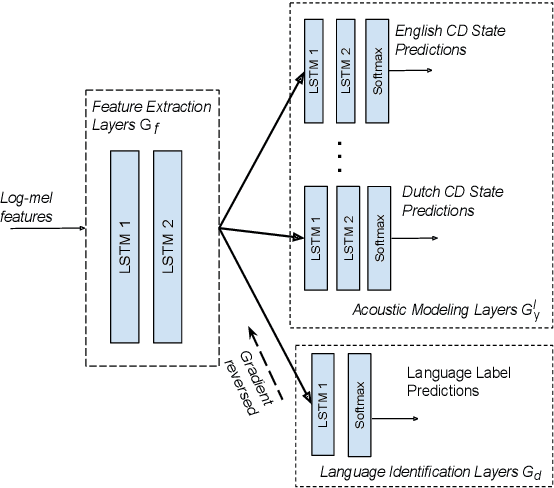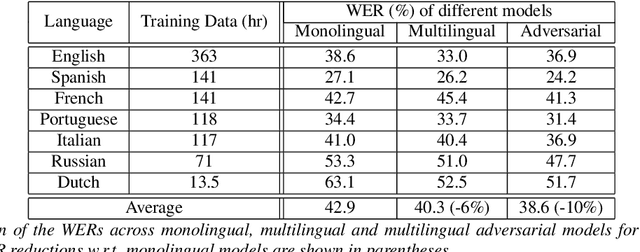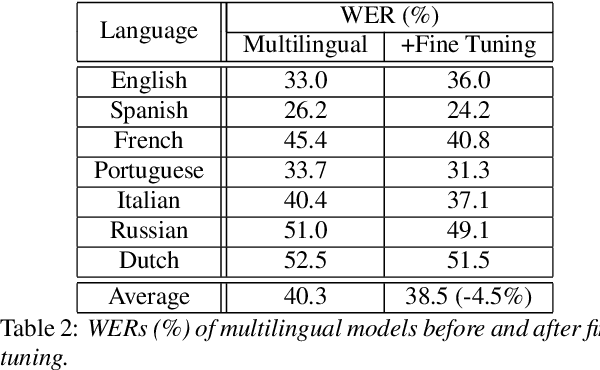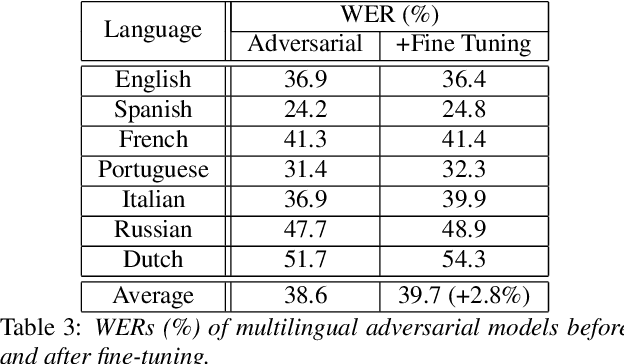Adversarial Training for Multilingual Acoustic Modeling
Paper and Code
Jun 17, 2019



Multilingual training has been shown to improve acoustic modeling performance by sharing and transferring knowledge in modeling different languages. Knowledge sharing is usually achieved by using common lower-level layers for different languages in a deep neural network. Recently, the domain adversarial network was proposed to reduce domain mismatch of training data and learn domain-invariant features. It is thus worth exploring whether adversarial training can further promote knowledge sharing in multilingual models. In this work, we apply the domain adversarial network to encourage the shared layers of a multilingual model to learn language-invariant features. Bidirectional Long Short-Term Memory (LSTM) recurrent neural networks (RNN) are used as building blocks. We show that shared layers learned this way contain less language identification information and lead to better performance. In an automatic speech recognition task for seven languages, the resultant acoustic model improves the word error rate (WER) of the multilingual model by 4% relative on average, and the monolingual models by 10%.
 Add to Chrome
Add to Chrome Add to Firefox
Add to Firefox Add to Edge
Add to Edge